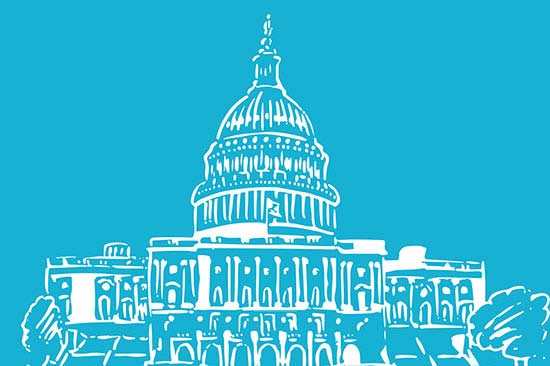How To Register Foreign Society In The Us
Updated: March 2021
The definitions in the Strange Agents Registration Act (FARA) are both sweeping and vague. This provides the Executive wide discretion for enforcement, creating dangers for ceremonious society, and ultimately undercutting the effectiveness of the Human action.
Recently, in that location accept been many attempts by Congress to strengthen FARA enforcement. While well intentioned, without modifying the Act, stronger enforcement could have significant negative consequences. This briefer introduces the dangers FARA poses to ceremonious society, both in the US and away.

Four Common FARA Misconceptions
ane. Who is a Foreign Primary?
Some observers believe that FARA is just targeted at the agents of foreign governments. All the same, a "foreign principal" under the Human action includes non only strange governments, but besides foreign individuals, foundations, nonprofits, companies, and other entities.
ii. Covered Activity
Many believe FARA just applies to lobbying or electioneering activity. Even so, the Human action covers an array of "political activities," which include attempts to influence "any section of the public within the U.s.a." on domestic or strange policy. Furthermore, these activities exercise not even need to be political. For example, an "agent" soliciting or disbursing contributions or other things of value on behalf of a strange principal is also covered by the Act.
3. FARA's "Principal-Agent Relationship"
FARA does not require a truthful primary-amanuensis relationship. The relationship can be far more informal than many appreciate. An entity can be considered an "amanuensis" even if the "agent" acts at the mere "request" or is financed "in major part" by the foreign chief (with both "request" and "major function" being undefined).
4. The Burden Imposed past FARA
While often thought of every bit a transparency statute, the Deed creates significant burdens. An "agent" needs to annals with the Justice Section, provide regular (publicly available) updates of activities covered by the Deed, and when providing data to the public must brand a "conspicuous" statement that information technology is acting on behalf of a foreign main. An agent that willfully does non comply faces criminal penalties.
FARA'southward Impact on Nonprofits
Most nonprofits–and many policymakers–do not fully capeesh the breadth of FARA, simply some organizations take already been caught up past the Act. Recent Justice Department informational opinions include those that required:
- A U.S. religious arrangement to register as a "foreign agent" for helping gear up banners for strange attendees to a March for Life rally considering in printing banners for a greenhorn information technology acted every bit a "publicity agent" under the Deed. Nov. 19, 2019, advisory stance.
- A U.Due south. ecology nonprofit to register because it received a grant from a foreign government to improve multi-national corporations' product sourcing practices to reduce the outcome on the environment in tropical countries. March 13, 2020, informational opinion.
- A consultant of a foreign non-governmental foundation to register for helping the foundation brainwash members of the U.Due south. public about development, democracy, and good governance issues abroad. Aug. 6, 2019, advisory opinion.
As FARA becomes more visible, it is increasingly "weaponized" by politicians, commentators, and others. Given the wide linguistic communication, information technology is like shooting fish in a barrel to accuse groups and individuals of violating the Act. For instance, in 2018 the House Natural Resources Committee held a hearing to investigate whether 4 prominent U.S. environmental nonprofits violated the Act, focusing on whether they ever acted at the "asking" of a foreign principal. This has led to fears most FARA'south politicization.
FARA's ill-defined terms, the burden of its requirements, and the threat of criminal prosecution, could discourage beneficial cross-edge ceremonious society activeness. Further, its breadth creates problems for enforcement. If the Act were fully complied with, the Justice Department would exist overwhelmed with superfluous registrations. The Deed's breadth and vagueness also leads it to beingness highly vulnerable to Ramble claiming, potentially jeopardizing the Justice Department'southward enforcement priorities.
Finally, FARA's broad language has repeatedly been used to justify anti-autonomous "foreign amanuensis" laws in countries like Russia, Nicaragua, and Hungary, which are then used to stigmatize and close-downwardly civil guild groups.
Remedy
The U.S. needs a modernistic approach to dealing with foreign influence in our globalized world. FARA should target foreign government attempts to influence U.S. democratic determination-making, not entangle civil guild groups for merely engaging in cross-border conduct.
FARA's definitions need to be amended and clarified. This is a multi-faceted problem, but whatsoever comprehensive reform should at least meliorate the Act to only target the agents of foreign governments or political parties or those acting on their behalf. The Act should also be amended to clearly state that information technology covers only truthful main-agent relationships.
Download a PDF of this briefer here.
How To Register Foreign Society In The Us,
Source: https://www.icnl.org/post/analysis/the-danger-of-the-foreign-agents-registration-act-fara-to-civil-society-at-home-and-abroad
Posted by: bennettfactly.blogspot.com


0 Response to "How To Register Foreign Society In The Us"
Post a Comment